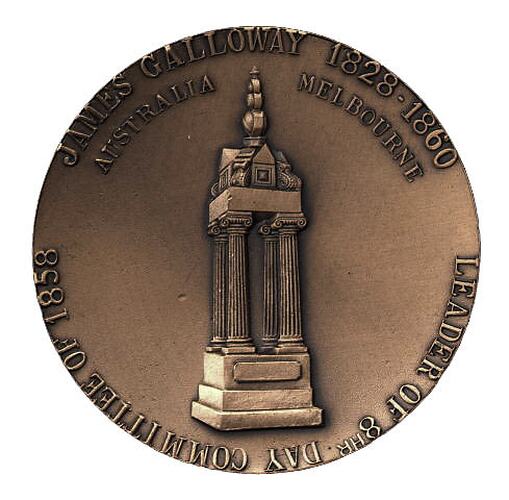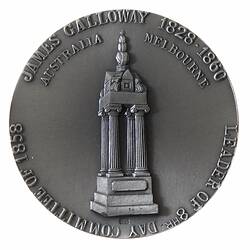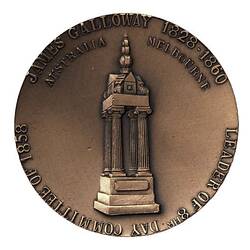James Galloway was a trade union official and leader of the Eight Hour Day movement. He was born in 1828 in Springfield, Fifeshire, United Kingdom. As a young man he would have witnessed the unsuccessful fight by British unions in the 1840s for a ten-hour working day. Galloway left England the following decade and arrived in Melbourne in 1854. By 1856 he had already helped to form a Committee of Masons, of which he became Secretary, with the main aim being the introduction of an eight hour working day.
In the summer of 1856, an opportunity presented itself to tradesmen in Melbourne. A building boom was underway, and labour was scarce. The tradesmen, mostly stonemasons and other skilled building workers, obtained government support for their cause and managed to negotiate an eight-hour working day. The eight-hour day survived economic downturn, employer opposition and union collapse. The principle for building workers to work an eight-hour day without a reduction in their pay soon became widespread, although it took more than half a century to be adopted throughout the workforce. The eight-hour day was widely celebrated as a world first and Australia became known as a 'workingman's paradise'.
In spite of this success, only a minority of workers initially won the eight hour day. Chinese and Aboriginal workers, women and children generally worked much longer hours for less pay.
By the 1880s, thousands of people turned out for the marches that commemorated the winning of the eight-hour day. Trades were represented with elaborate banners, floats and costumes, like the eight-hours armour made by the Tinsmiths Union to symbolise industrial strength and protection.
Galloway died in 1860, at the early age of thirty-two.
References:
Reeves, Andrew (1988). Another Day Another Dollar: Working Lives in Australian History.
Museum Victoria website http://www.museum.vic.gov.au/windows/8hrs/index.asp
Australian Trade Union Archives website http://www.atua.org.au/biogs/ALE1111b.htm
More Information
-
Keywords
-
Localities
-
Authors
-
Article types


